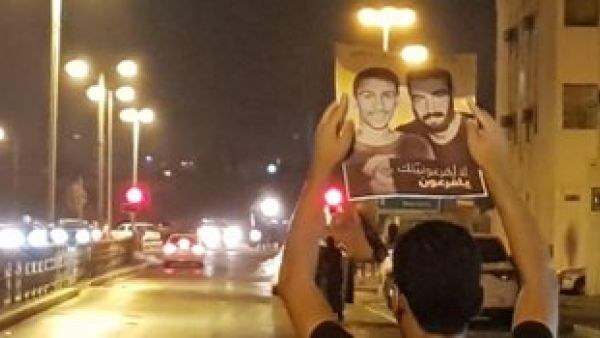Bahraini activists say a young man died after participating in protests against the execution of two men whose trial drew concern from UN human rights experts.
Protests broke out following Bahrain's execution of three men on Saturday despite pleas from the UN, Amnesty International, Human Rights Watch, and other human rights organizations.
The protesters blocked roads and burned tyres, while calling for the fall of the regime and Bahraini King Hamad bin Khalifa, according to the German Press Agency.
The dead protester was identified as 22-year-old Mohammed Al-Miqdad by Bahraini opposition media. The Bahrain Institute for Rights and Democracy (BIRD) says that he died on Sunday at a hospital after being found unconscious on the street shortly after the protests.
The bloodshed of innocent youth in #Bahrain seems to be unending: 22YO Mohamed AlMoqdad was killed today after inhaling teargas fired in excessive quantities by regime forces targeting mourners during protests following the brutal executions. #الشهيد_محمد_المقداد#إعدام_وطن pic.twitter.com/luJ2IlQ98Y
— Printemps Arabe (@PrintempsArabeS) July 28, 2019
Bahraini opposition media said that he died as a result of inhaling tear gas but the Bahraini interior ministry announced that he had died of "natural causes".
On Saturday, Bahraini authorities executed two opposition activists, Ali al-Arab and Ahmed al-Malali, for their alleged involvement in the 2017 killing of a police officer. Amnesty International and Human Rights Watch said that their confessions were obtained under torture.
The third executed man was a Bangladeshi muezzin who confessed to the killing of the imam of a mosque.
{"preview_thumbnail":"https://cdn.flowplayer.com/6684a05f-6468-4ecd-87d5-a748773282a3/i/v-i-8…","video_id":"84a1b66b-04f8-458c-9458-3a4527622703","player_id":"8ca46225-42a2-4245-9c20-7850ae937431","provider":"flowplayer","video":"2nd UK Navy Vessel Arrives in Gulf to Escort Trade Ships"}
Bahrain is a Shia majority country but has a Sunni ruling family. In 2011, the country witnessed an 'Arab Spring' uprising calling for democratic reform. The government responded with repressive measures including shooting of protesters and imprisonment, mass trials, and torture of opposition activists.
This article has been adapted from its original source.








